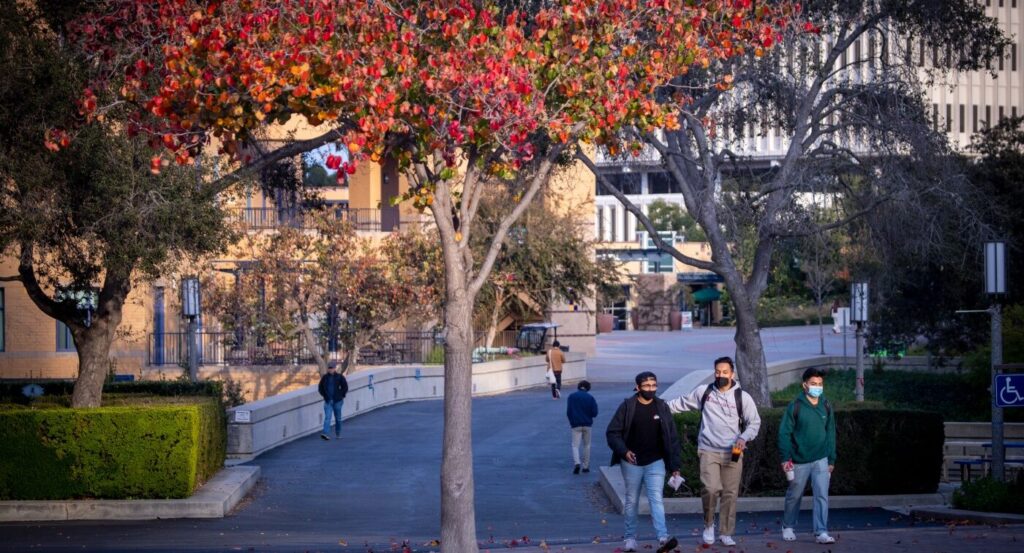March 18, 2022
A Lesson in Solidarity
By Lisa Herforth-Hebbert
Tenure gives more protection on campus. Can faculty use it help their students?
By Sunny Yan

With Covid rates falling nationally, most college students have returned to in-person classes. While some universities continue to offer remote options for students, other campuses have enforced a unilateral return.
This includes my own school, the University of California–Davis. In a joint school-wide email sent on December 30, 2021, the chancellor and the provost of UC Davis wrote that since “the Omicron variant is highly transmissible and appears to cause milder disease in vaccinated and boosted people, we are entering a new phase of adapting our campus approach and activities to living with COVID-19 at an endemic level.”
Though some students have embraced the return to in-person education, many still express grave doubts about a swift return to pre-pandemic practices. Universities defend their policy of returning to in-person classes by pointing out their exemption process. At UC Davis, for example, students with documented medical issues or disabilities can seek permission from the Student Disability Center (SDC) to take courses online and Disability Management Services (DSM) for graduate students to teach courses online. The approval requires a lengthy bureaucratic process in which those offices alone wield the unilateral power to decide which medical issues or disabilities are worthy of exemption.


